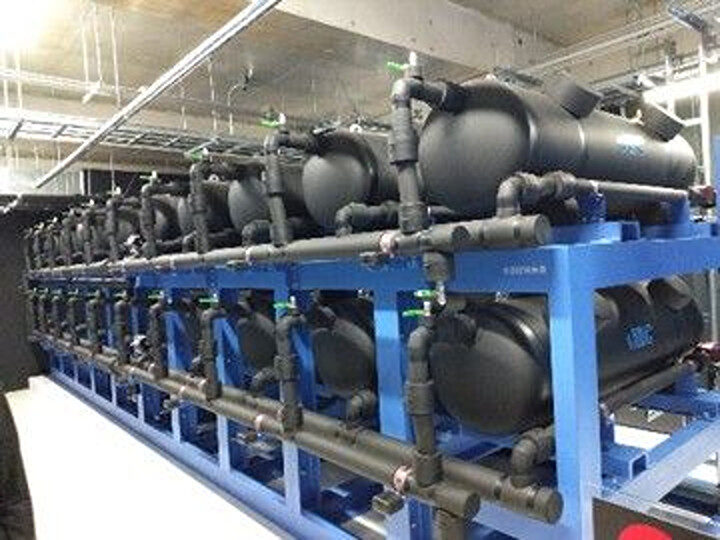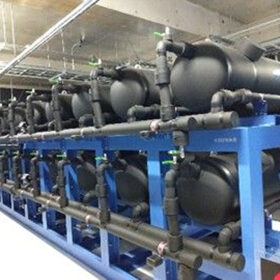From pv magazine Global
Europe is growing its solar fleet in leaps and bounds, with cumulative installed capacity though to October already matching the total installed for all of last year. According to Rystad Energy modeling, new solar capacity additions are on track to grow 30% year on year, surpassing 58 GW (DC) of new panels by the year’s end.
After briefly conceding top position to Spain last year, Germany is retaking the lead with a projected 84% annual growth this year, reaching a record high of 13.5 GW of total solar PV capacity. Meanwhile, Spain faces challenges in maintaining momentum this year, despite its record-breaking performance in 2022.
Other key markets include Poland and the Netherlands, with their growth fueled by a surge in rooftop installations. Rooftop PV is expected to account for 70% of all newly installed solar across the continent.
“Rooftop solar is driving the transformation of Europe’s renewable energy landscape, from a niche market to a powerful force in reshaping the continent’s energy mix,” said Vegard Wiik Vollset, vice president and head of EMEA renewables research at Rystad Energy.
Contrasting solar’s success story, wind energy – including onshore and offshore, both of which were previously on a robust growth path – has faced hurdles that could hinder its expansion.
Due to permitting bottlenecks and rising supply chain costs, Rystad Energy forecasts a 11% drop in onshore wind installations in 2023 compared to last year. Offshore wind capacity is expected to grow this year, but only by 2% due to project delays.
Previously, a report presenting the RepowerEU plan’s progress one year after its launch, said the European Union will add 69 GW of solar and wind capacity in 2023, representing a 17% increase year-on-year.
A separate report from Aurora Energy Research released in June said Europe is on track to install 475 GW of solar power generation capacity by 2030 – more than double the continent’s current installed capacity. This will require more than EUR 145 billion ($153.4 billion) investment, the analysts have calculated.
“Solar power is set to become the largest source of power generation globally by 2027 and to account for 65% of worldwide renewable capacity growth in 2023,” Aurora Energy Research said in its first dedicated European Solar Market Attractiveness Report.
According to BloombergNEF, the 2023 global solar installations will grow by 56% year on year to a “record high” volume of nearly 400 GW driven by falling prices of solar modules and the rapid buildup of PV projects in China and elsewhere.
In its flagship report World Energy Outlook, released earlier this month, the International Energy Agency (IEA) said that this year alone renewables generation capacity additions will exceed 500 GW globally, with $1 billion per day spent on solar deployment.
Renewables are set to contribute 80% of new power capacity to 2030 in the stated policies scenario (STEPS), with solar PV alone accounting for more than half of this, according to the IEA report.
“Solar has become a major global industry and is set to transform electricity markets even in the STEPS. But there is significant scope for further growth given manufacturing plans and the technology’s competitiveness,” the IEA writes.
By the end of the decade, the world could have manufacturing capacity for more than 1 200 GW of panels per year, according to the IEA. But in the STEPS, only 500 GW is deployed globally in 2030 – less than half of the module nameplate capacity potentially available for deployment.
This content is protected by copyright and may not be reused. If you want to cooperate with us and would like to reuse some of our content, please contact: editors@pv-magazine.com.









By submitting this form you agree to pv magazine using your data for the purposes of publishing your comment.
Your personal data will only be disclosed or otherwise transmitted to third parties for the purposes of spam filtering or if this is necessary for technical maintenance of the website. Any other transfer to third parties will not take place unless this is justified on the basis of applicable data protection regulations or if pv magazine is legally obliged to do so.
You may revoke this consent at any time with effect for the future, in which case your personal data will be deleted immediately. Otherwise, your data will be deleted if pv magazine has processed your request or the purpose of data storage is fulfilled.
Further information on data privacy can be found in our Data Protection Policy.